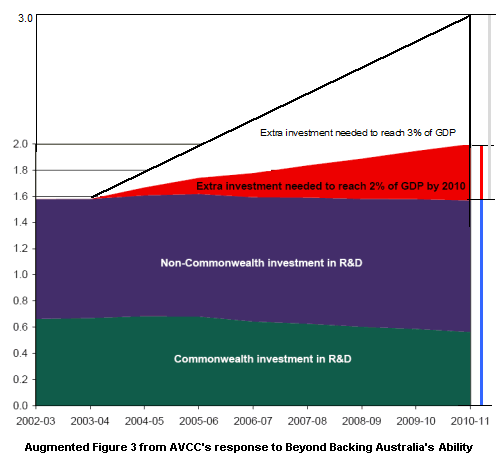|
Editorial-26 June 2004 |
|
Whom to Lobby - How to Lobby - When to Lobby |
 It was Theodore Roosevelt who as Governor of New York once observed to a
friend:
It was Theodore Roosevelt who as Governor of New York once observed to a
friend:
I have always been fond of the West African proverb: "Speak softly and carry a big stick; you will go far."
Now when it comes to political
lobbying Roosevelt's observation remains the ultimate political truth. The power
of the US National Rifle Association is one of the most frequently cited
examples. In Australia the release of the
Coalition Government's energy white
paper![]() on Wednesday June 16 and its implicit support for "clean coal" and geosequestration while treating the sustainable energy industries with less than
benign neglect, not to mention the garrotting of sustainable energy Cooperative
Research Centres, is a good local case in point.
on Wednesday June 16 and its implicit support for "clean coal" and geosequestration while treating the sustainable energy industries with less than
benign neglect, not to mention the garrotting of sustainable energy Cooperative
Research Centres, is a good local case in point.
On Friday June 18 the Australian Business Council for Sustainable Energy met and issued a statement which included "Lobbying governments to commit to a 60% cut in greenhouse pollution by 2050, as cuts of this level are needed to avoid dangerous impacts of climate change... The group [also] agreed that in the lead up to the Federal Election, we will be working individually and collectively to inform the public on every political party’s energy policies and on the importance of renewable energy and the types of policy measures that are required to support its development."
But with an election looming it seems it's a bit late to man the battlements especially considering the weapons of "shock and awe" mounted against them. In addition nothing was said about what resources would be used to alter the government's mindset or to get the Australian population to look upon the matter of support for sustainable energy to be a matter of acute importance to them, comparable say to reversing an increase of a petrol tax levy.
An analogous problem, vis a vis resources and big sticks, arises when the Federation of Australian Scientific and Technological Societies (FASTS) sets up its now annual two day Science Meets Parliament sessions; the first one of which was held in 1999. It is difficult to assess how much positive impact the five meetings held to date have had on enhancing Coalition support for Australian science, but it is reasonable to assert that if there has been a change in federal governmental support it has not been brought about through pressure from parliamentary backbenchers. What has been evident is that support for research and development as a proportion of GDP became static from 2001 through 2005 rather than continuing to decline, but is predicted to again decline from 2006 through 2011.
AVCC's 2010 R&D target = 2% of GDP; EU's & Canada's = 3% of GDP
Australian Government has not set one
What is needed is a concerted promotion to get the Australian population to look upon the matter of support for sustainable scientific research to be a matter of acute importance to them. And that requires support for basic research at the university level on up, otherwise the research structure collapses because of the crumbling foundation. But from where do the resources come to sustain such a program of public education? And so far as the mass media are concerned it's an issue holding little interest.
Most recently the Australian Vice-Chancellors' Committee has evoked some interest by its funding for political lobbying media being published. According to Dorothy Illing of The Australian the AVCC paid $220,000 to try to influence the outcome of the federal Government's overhaul of universities last year. And in a parallel to FASTS Science Meets Parliament last year it undertook its first, "Schmoozing" of politicians when it staged University Meets Parliament at a cost of a further $107,000. What has it got for its efforts so far. The Higher Education Support Bill, 2003 and Backing Australia's Ability II, neither one of which if the truth be told is going to catapult Australia's Research and Development or university sectors into the world's upper crust of knowledge economies if we examine recent AVCC documents (and see the chart above). What is really required is to sustain a program of public education. Not until that gains momentum so that it rattles backbenchers will actual progress be made as opposed to the government supplying fridge magnets telling the citizenry to be watchful without panicking.
But unless the research and higher education communities get serious about making their case to the public of the crucial importance for providing resources comparable to the highest international standards will we begin to catch up to our cohort nations? And without adequate incentives for the private sector to seriously increase its commitment to R&D we will continue to drop further behind.
The Coalition government's pressure to drive Australia's universities ever more toward being handmaidens of applied research and morphing into institutes of advanced vocational studies is a certain recipe for the nation's decline. As for Labor... it remains a mystery.
Alex Reisner
The Funneled Web
